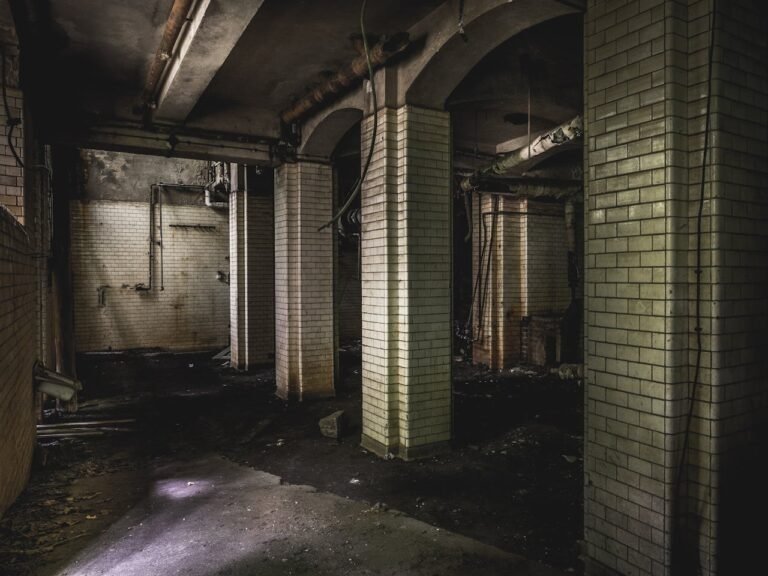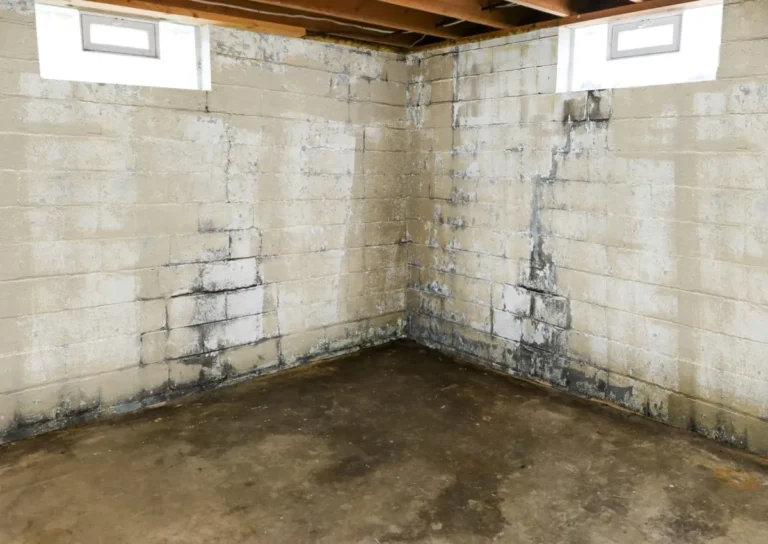Is Basement Waterproofing Worth It? Reveal the Truth!
Yes, basement waterproofing is worth it. It protects your home from water damage and enhances property value.
Basement waterproofing is an essential investment for homeowners. Water infiltration can lead to serious issues, including mold growth and structural damage. These problems not only compromise your home’s safety but also decrease its market value. Waterproofing solutions provide peace of mind, ensuring your living space remains dry and comfortable.
Need Service: Basement Waterproofing Springfield MA
Many homeowners overlook their basements, but neglecting this area can result in costly repairs down the line. By addressing potential water issues proactively, you maintain a healthier environment and prevent future headaches. Overall, the benefits of basement waterproofing far outweigh the initial costs, making it a smart choice for any homeowner.
Introduction To Basement Waterproofing
Basement waterproofing protects your home from water damage. It keeps your basement dry and safe. Many homeowners face issues like leaks and mold. Understanding basement waterproofing can help prevent these problems.
Why Consider Waterproofing?
Waterproofing your basement offers several benefits:
- Prevents Water Damage: Stops leaks and flooding.
- Reduces Mold Growth: Keeps air clean and healthy.
- Increases Home Value: A dry basement adds value.
- Improves Energy Efficiency: Keeps heating and cooling costs down.
Investing in waterproofing saves money in the long run. It protects your belongings and your investment.
Common Misconceptions
Many myths surround basement waterproofing. Understanding these can help homeowners make better choices.
| Myth | Fact |
|---|---|
| Waterproofing is too expensive. | It saves money on repairs later. |
| Only new homes need waterproofing. | Older homes benefit greatly too. |
| Waterproofing is a one-time fix. | Regular maintenance is essential. |
| All waterproofing methods are the same. | Different methods suit different homes. |
Knowing the facts helps homeowners make informed decisions. Don’t let myths stop you from protecting your home.
The Science Behind Water Damage
Understanding the science behind water damage is crucial. Water can cause serious problems for your home. It affects your foundation, walls, and even your health. Knowing how this happens helps in making informed decisions.
How Water Affects Foundations
Water plays a significant role in the health of your home’s foundation. Here’s how:
- Hydrostatic Pressure: Water builds up around the foundation. This pressure can crack walls.
- Soil Erosion: Excess moisture erodes the soil under your foundation. This can lead to uneven settling.
- Freeze-Thaw Cycles: Water freezes and expands in cold weather. This can cause further cracking.
| Water Effect | Impact on Foundation |
|---|---|
| Hydrostatic Pressure | Cracks in walls and floor |
| Soil Erosion | Uneven settling |
| Freeze-Thaw | Increased cracking |
Long-term Impacts Of Moisture
Moisture can lead to long-term damage. Here are some issues caused by persistent water:
- Mold Growth: Mold thrives in damp areas. This can lead to health problems.
- Structural Damage: Continuous moisture weakens materials. This affects the integrity of your home.
- Increased Repair Costs: Ignoring water issues leads to expensive repairs.
Addressing water damage early saves time and money. Protect your home from these potential issues.
Read More: How do you permanently waterproof a basement?
Comparing Waterproofing Methods
Choosing the right waterproofing method is crucial for basement protection. Each method has its pros and cons. Understanding these differences helps in making an informed decision.
Internal Vs. External Solutions
Two main categories of waterproofing exist: internal and external solutions. Each method offers unique benefits.
| Feature | Internal Solutions | External Solutions |
|---|---|---|
| Cost | Generally lower | Usually higher |
| Installation Time | Faster | Slower |
| Effectiveness | Good for minor leaks | Best for severe issues |
| Disruption | Minimal | High |
Popular Waterproofing Techniques
- Sealants: Applied to walls and floors to block moisture.
- Drainage Systems: Directs water away from the foundation.
- French Drains: Installed around the foundation to catch water.
- Interior Waterproofing: Involves sump pumps and dehumidifiers.
- Exterior Waterproofing: Involves excavation and waterproof membranes.
Consider your specific needs and budget. Choose wisely for effective basement protection.
Cost Analysis Of Basement Waterproofing
Understanding the cost of basement waterproofing is essential. It helps homeowners make informed decisions. This analysis focuses on the initial investment and potential savings over time.
Initial Investment
The first cost is the initial investment. This includes materials and labor. Here’s a breakdown:
| Type of Waterproofing | Average Cost |
|---|---|
| Interior Waterproofing | $1,500 – $5,000 |
| Exterior Waterproofing | $3,000 – $10,000 |
| French Drain Installation | $1,500 – $4,000 |
| Sump Pump Installation | $1,000 – $3,000 |
Costs vary based on factors like:
- Size of the basement
- Type of waterproofing method
- Location
Potential Savings Over Time
Investing in waterproofing can lead to significant savings. Here’s how:
- Preventing Water Damage: Water damage can cost thousands. Waterproofing protects your home.
- Reducing Mold Growth: Mold removal can cost between $500 and $6,000. Waterproofing minimizes mold risk.
- Lower Insurance Premiums: Some insurers offer discounts for waterproofed homes.
- Increased Property Value: A waterproofed basement adds value. It attracts potential buyers.
Considering these factors shows that basement waterproofing is often a wise investment. The savings can surpass the initial costs.
Real Estate Value And Waterproofing
Basement waterproofing plays a crucial role in real estate value. Homebuyers seek properties that are free from water damage. A dry basement enhances the overall home appeal. Investing in waterproofing can yield significant returns.
Impact On Property Value
Waterproofing adds value to your home. Properties with dry basements sell for higher prices. Here’s how waterproofing impacts property value:
- Reduced Risk of Damage: Waterproofing prevents mold and structural damage.
- Lower Maintenance Costs: Homeowners save on repairs and restoration.
- Increased Longevity: A well-maintained basement lasts longer.
Here’s a quick comparison of property values:
| Property Type | With Waterproofing | Without Waterproofing |
|---|---|---|
| Average Home Price | $350,000 | $300,000 |
| Mold Risk | Low | High |
| Repair Costs | Minimal | High |
Attractiveness To Buyers
A waterproofed basement makes a property more attractive to buyers. Buyers prefer homes that require less work. Here are reasons why waterproofing attracts buyers:
- Peace of Mind: Buyers feel secure in their investment.
- Usable Space: A dry basement offers extra living space.
- Energy Efficiency: Proper waterproofing can improve insulation.
Investing in waterproofing not only protects your home but also enhances its marketability.
Read More: Can I waterproof my basement myself?
Maintenance And Upkeep
Proper maintenance ensures your basement waterproofing lasts. Regular checks can prevent costly repairs. Focus on routine inspections and knowing when to hire professionals. This keeps your basement safe and dry.
Routine Checks And Balances
Regular inspections help spot issues early. Follow this simple checklist:
- Inspect walls for cracks or dampness.
- Check gutters for clogs and proper drainage.
- Examine windows for leaks.
- Look for mold or mildew.
Perform these checks at least twice a year. Take notes on any changes. This keeps you informed about your basement’s condition.
When To Call The Professionals
Some issues require expert help. Know when to call a professional:
- If you find large cracks in walls.
- When water pools in your basement.
- If mold growth is significant.
- When you notice a musty smell.
Professional help can save time and money. They have the tools and expertise to fix problems effectively.
Making The Decision
Deciding on basement waterproofing is crucial. It affects your home’s value and safety. Understanding your home’s needs is the first step. This helps in making an informed choice.
Assessing Your Home’s Needs
Check your basement for signs of water damage. Look for:
- Mold or mildew growth
- Water stains on walls or floors
- Musty odors
- Cracks in walls or floors
Consider the following factors:
| Factor | Importance |
|---|---|
| Location | High flood-risk areas need more waterproofing. |
| Age of Home | Older homes may need more repairs. |
| Current Moisture Levels | High moisture indicates a need for action. |
Gather information on your home’s structure. This helps you identify potential issues.
Is Waterproofing The Right Choice?
Waterproofing offers many benefits:
- Prevents costly repairs
- Improves indoor air quality
- Increases home value
- Protects personal belongings
Consider these questions:
- Do you plan to finish your basement?
- Will you use the space for living?
- Can you afford the initial investment?
Evaluate your long-term goals. Waterproofing might be essential for your home.
Read More: How many coats of basement waterproofing?
Frequently Asked Questions
Is Basement Waterproofing Necessary For Every Home?
Basement waterproofing is essential for homes in flood-prone areas. It protects against water damage, mold, and structural issues. Even if your basement is dry now, future heavy rains could change that. Investing in waterproofing can save you money and stress in the long run.
How Much Does Basement Waterproofing Cost?
The cost of basement waterproofing varies widely, ranging from $1,500 to $5,000. Factors include the size of your basement, the type of waterproofing method, and the local market. While it may seem expensive, consider it an investment in your home’s value and safety.
What Are The Benefits Of Waterproofing A Basement?
Waterproofing your basement prevents water damage and mold growth. It enhances air quality, making your home healthier. Additionally, it increases your home’s resale value and expands usable space. A dry basement also protects your foundation from structural issues.
Can I Waterproof My Basement Myself?
While DIY waterproofing is possible, professional help is often recommended. Experts use specialized tools and techniques for effective results. Incorrect application can lead to further problems, costing more in the long run. It’s best to consult professionals for a thorough assessment.
Conclusion
Investing in basement waterproofing can save you from costly repairs in the future. A dry basement enhances your home’s value and livability. It also protects your belongings and improves indoor air quality. Weigh the costs against the benefits to make an informed decision.
Waterproofing is often a wise choice for homeowners.




